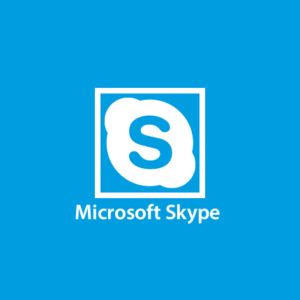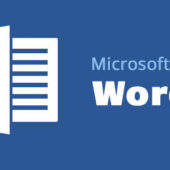Microsoft Skype
Skype is a telecommunications application that specializes in providing video chat and voice calls between computers, tablets, mobile devices, the Xbox One console, and smartwatches via the internet. Skype also provides instant messaging services. Users may transmit text, video, audio, and images. Skype allows video conference calls. As of March 2020, Skype was used by 100 million people on a monthly basis and by 40 million people on a daily basis.
First released in August 2003, Skype was created by Swedish entrepreneur Niklas Zennström and Danish entrepreneur Janus Friis, in cooperation with four Estonian developers. In September 2005, eBay acquired Skype for $2.6 billion.
In September 2009, Silver Lake, Andreessen Horowitz, and the Canada Pension Plan Investment Board announced the acquisition of 65% of Skype for $1.9 billion from eBay, which attributed to the enterprise a market value of $2.92 billion. Microsoft bought Skype in May 2011 for $8.5 billion. Skype division headquarters are in Luxembourg, but most of the development team and 44% of all the division’s employees are still situated in Tallinn and Tartu, Estonia.
Skype allows users to communicate over the Internet by voice, using a microphone, by video using a webcam, and by instant messaging. Skype implements a freemium business model.
Skype-to-Skype calls are free of charge, while calls to landline telephones and mobile phones (over traditional telephone networks) are charged via a debit-based user account system called Skype Credit. Some network administrators have banned Skype on corporate, government, home, and education networks, citing such reasons as inappropriate usage of resources, excessive bandwidth usage, and security concerns.
Skype originally featured a hybrid peer-to-peer and client-server system. Skype has been powered entirely by Microsoft-operated supernodes since May 2012. The 2013 mass surveillance disclosures revealed that Microsoft had granted intelligence agencies unfettered access to supernodes and Skype communication content.
Throughout 2016 and 2017, Microsoft redesigned its Skype clients in a way that transitioned Skype from peer-to-peer service to a centralized Azure service and adjusted the user interfaces of apps to make text-based messaging more prominent than voice calling. Skype for Windows, iOS, Android, Mac, and Linux received significant, visible overhauls.
Features
1. Registered users of Skype are identified by a unique Skype Name and may be listed in the Skype directory. Skype allows these registered users to communicate through both instant messaging and voice chat. Voice chat allows telephone calls between pairs of users and conference calling and uses a proprietary audio codec.
2. Skype’s text chat client allows group chats, emoticons, storing chat history, and editing of previous messages. Offline messages were implemented in a beta of version 5 but removed after a few weeks without notification. The usual features familiar to instant messaging users—user profiles, online status indicators, and so on—are also included.
3. The Online Number, a.k.a. SkypeIn, service allows Skype users to receive calls on their computers dialed by conventional phone subscribers to a local Skype phone number; local numbers are available for Australia, Belgium, Brazil, Chile, Colombia, Denmark, the Dominican Republic, Estonia, Finland, France, Germany, Hong Kong, Hungary, India, Ireland, Japan, Mexico, Nepal, New Zealand, Poland, Romania, South Africa, South Korea, Sweden, Switzerland, Turkey, the Netherlands, the United Kingdom, and the United States.
4. A Skype user can have local numbers in any of these countries, with calls to the number charged at the same rate as calls to fixed lines in the country. The countries on this growing list are referred to collectively as the Skype In Countries.
5. Skype supports conference calls, video chats, and screen sharing between 25 people at a time for free.
6. Skype does not provide the ability to call emergency numbers, such as 112 in Europe, 911 in North America, or 100 in India and Nepal. However, as of December 2012, there is limited support for emergency calls in the United Kingdom, Australia, Denmark, and Finland.
The U.S. Federal Communications Commission (FCC) has ruled that, for the purposes of section 255 of the Telecommunications Act, Skype is not an “interconnected VoIP provider”. As a result, the U.S. National Emergency Number Association recommends that all VoIP users have an analog line available as a backup.




